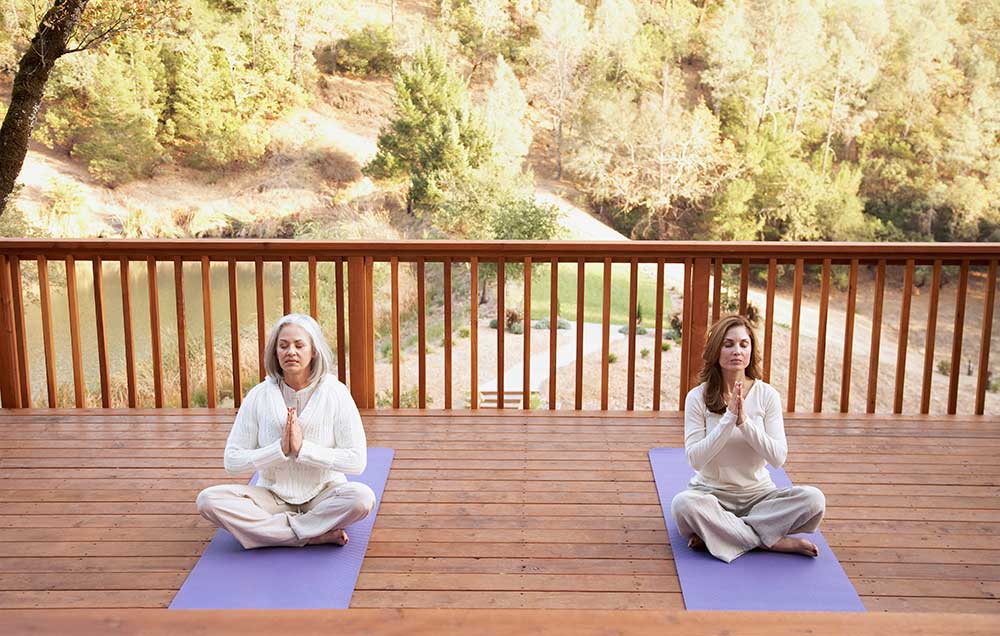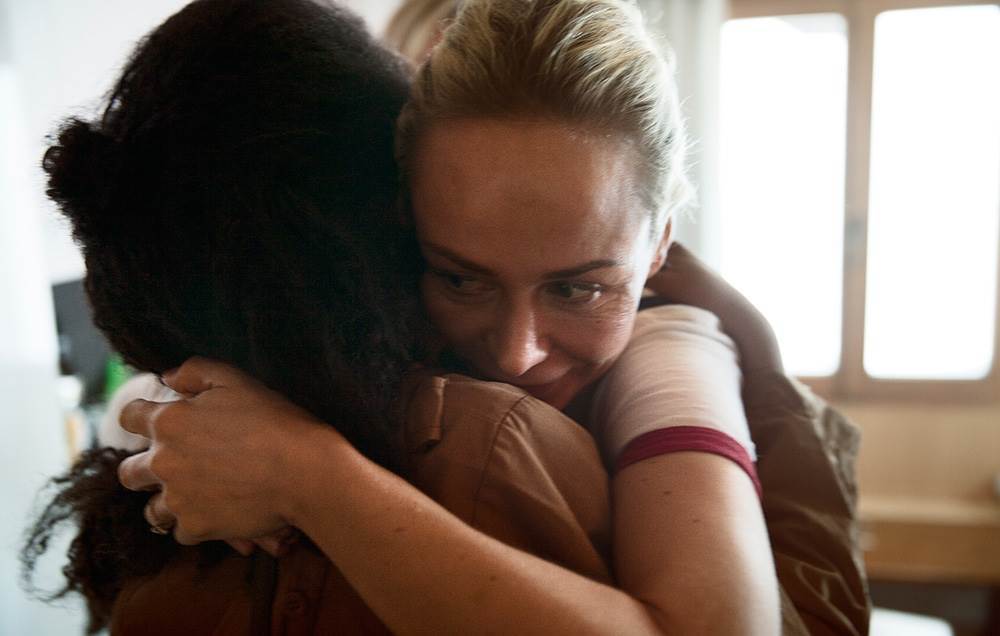One BFF who does it all sounds nice in theory, but realistically, the person you who makes you laugh instantaneously might not be the same person who gives great advice or the person who picks up after one ring - and that’s okay. Call the first pal for margaritas; just don’t list her as your emergency contact. (Both, for the record, are important.)
“As human beings we have different needs, and no one person could possibly fulfill all of them,” says psychologist Sandy Neshin Bernstein. “It’s important not to expect one person to be everything to you.”
We’re all for appreciating friends for whichever hats they wear best. Some will wear many, whereas others will adorn your life in just one specific way. Either way, these are the seven types of friends many women find themselves counting on. Who tends to fill these roles in your own life? You may be surprised by the answer. And if you feel like your list is incomplete, there’s always room for a New Mate (see number seven).







Photograph by Blend Images/Mike Kemp/Getty Images
The Friend You’ve Known Forever
She grew up alongside you, stuck by you through thick and thin, and understands the complicated history that underlies every romantic disappointment and family feud. “Being understood and having a consistent view of yourself through time helps you develop a stable sense of self,” says psychologist Dr Jessica Koblenz. “A friend who is able to tell you, ‘You always get stressed before a holiday, and you’re always okay’ helps a great deal.”
With an arsenal of private jokes, you two can go a long time without seeing one another and still pick up right where you left off. Yes, you butt heads - after all, you’ve had decades to learn one another’s flaws - but this friend sees you exactly for who you are (it's just one of the elements of a fantastic friend.) Take comfort knowing that you’re bonded to her for life.
Photograph by Trinette Reed/Getty Images
The Inspirational Friend
This friend radiates positivity, likely because she’s living her best life, whether that means hiking Kilimanjaro, going on a spiritual yoga journey, or killing it at her new job. She’s a “power hitter,” as Koblenz puts it. “Sometimes we push ourselves when we compare ourselves to someone who is idealised in some way. It helps us reach our own potential.”
In other words, you want to be more like your Inspirational Friend - but not in a Regina George-from-Mean Girls kind of way. She’s supportive of your goals and confident that you’ll succeed at anything you put your mind to. She sees the best in you, and as a result, you leave her side feeling more confident.
Photograph by Henrik Sorensen/Getty Images
The Emergency Contact/Confidant
This friend is reliable in every way. She’s “the one you know will always be there,” says Koblenz. She’ll drop everything to help you out if you’re in a bind and takes you at your word. What bonds you is trust, and she takes that trust seriously - which also means that if you share a secret with her, she’s taking it to the grave.
Photograph by PhotoAlto/Sigrid Olsson/Getty Images
The Shared Experience Friend
A “shared experience friend” is another key supporting character in your life, says psychologist Wendy Satin Rapaport. As a diabetes specialist, Rapaport likes to pair her patients up “so they have the ‘shorthand’ of knowing the challenges and can prod each other into good solutions.”
A friend who “gets it” may look different depending on what stage of life you’re in and what consumes your time, adds Koblenz. “If you're a mum, it's other mum friends. If you're wedding planning, it's someone who just went through it. If you have anxiety or depression, it's a friend who is battling the same thing and can give you pointers and strategies that actually work.” And if you’re focused on your professional career, it may be your work wife (or husband). Most vitally, you relate to this friend because you’re in the trenches together.
Photograph by Sam Diephuis/Getty Images
The Soul Sister
One of the most beautiful hallmarks of sibling relationships is comfortable silence. Your Soul Sister - who might be a close friend, a roommate, or your actual sibling - is someone with whom you share an intimacy so cozy that you can enjoy one another’s presence without the need for conversation or entertainment. That doesn’t mean you won’t find yourselves riffing endlessly off of one another once you get to chatting, but you don’t need to. You can just as happily sit read, or watch TV within each other’s orbits. In the presence of your Soul Sister, you feel at home.
Bernstein uses another familial metaphor for this kind of friendship: “In our book Friendship Matters, we write about the power of having an even deeper type of friendship, one in which each friend is able to be a ‘good mother’ to the other.” If you’re lucky enough to cultivate a relationship this nurturing, it stands apart from the rest.
Photograph by Caiaimage/Paul Bradbury/Getty Images
The Drama Queen
Sounds like a friend you might want to cut from the squad, right? Wrong, says Koblenz: A “crazy friend who, by comparison, reassures you that you are okay” can actually be a positive part to your life. “It sounds horrible, but sometimes by comparing ourselves to others it makes us feel better.” We can’t always be calm, cool, and collected - and this friend reminds you that that’s okay. You might even be their Inspirational Friend, or maybe you’re their Drama Queen once in a while.
Photograph by Betsie Van der Meer/Getty Images
The New Mate
Unlike the Friend You’ve Known Forever, this friend-to-be entered your life only recently. You may have met her through a mutual acquaintance or a class you signed up for, and you’re essentially in the dating phase. Some people stop actively seeking out new friendships once they feel “settled” in their lifestyles and communities, but keep branching out: New friends broaden your horizons and, like actual dating, add a jolt of excitement to your social routine.
Moreover, you never know which other type of friend on this list a New Mate may one day become. “We believe that friends can grow into all the [above] roles, once we communicate and make it known to each other what our needs are,” says Rapaport. “Your changing needs and circumstances are always going to be important factors in who becomes a friend.”










